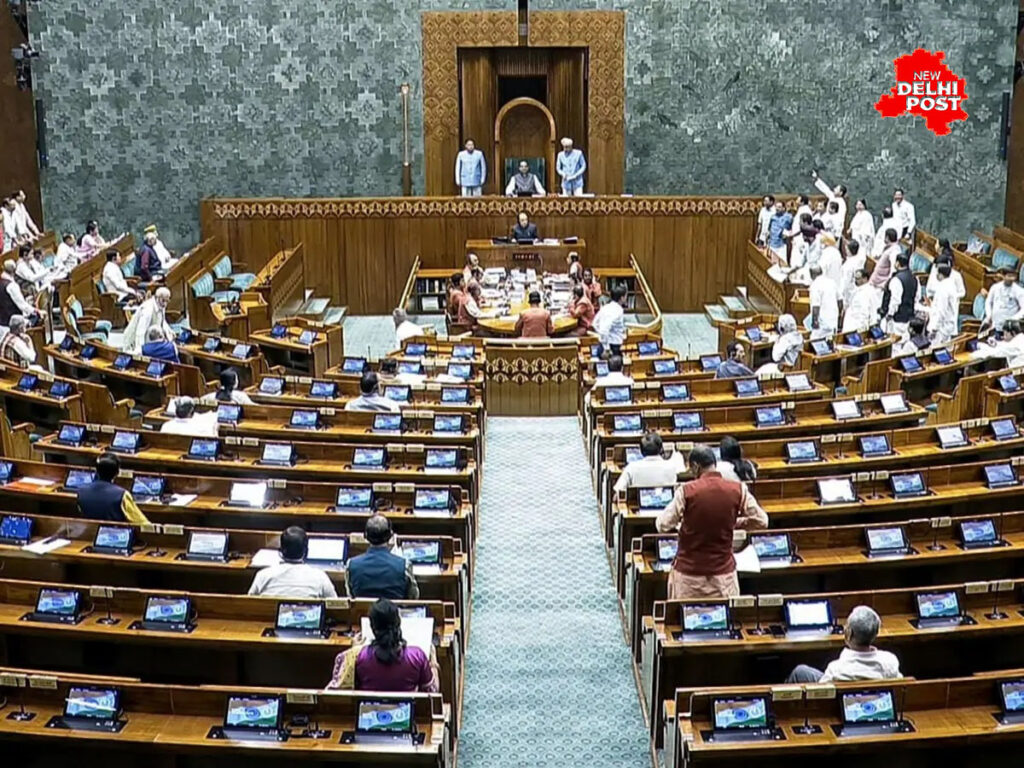The upcoming parliamentary session is poised for intense debates as opposition demands answers on recent security developments.
New Delhi: The Monsoon Session of Parliament is scheduled from July 21 to August 12, 2025, Union Parliamentary Affairs Minister Kiren Rijiju announced on Wednesday. The decision, recommended by the Cabinet Committee on Parliamentary Affairs chaired by Defence Minister Rajnath Singh, awaits presidential approval. The announcement comes amid escalating demands from opposition parties for a special session to discuss the Pahalgam terror attack and the subsequent Operation Sindoor, setting the stage for a stormy session.
Opposition’s Push for Accountability
The opposition, led by the INDIA alliance, has been vocal about addressing the Pahalgam attack of April 22, 2025, and Operation Sindoor, a military response that has stirred significant controversy. On Tuesday, 16 opposition parties, including Congress and TMC, wrote to Prime Minister Narendra Modi, urging a special parliamentary session. Congress President Mallikarjun Kharge, in a post on X, emphasized the need for transparency, citing civilian deaths in Poonch, Uri, and Rajouri during recent India-Pakistan military tensions. He questioned the government’s “ceasefire declarations” and their implications for India’s national security and foreign policy.
Government’s Stance on Discussions
Responding to the opposition’s demands, Rijiju clarified that all issues, including the Pahalgam attack and Operation Sindoor, could be discussed during the Monsoon Session under existing parliamentary rules. He noted that both houses would convene on July 21 at 11 a.m., following a gap of over three months since the last session. The minister’s remarks aim to diffuse tensions, but analysts predict heated exchanges, given the opposition’s resolve to corner the government on security lapses.
Impeachment Motion Looms Large
Adding to the session’s volatility, the government is reportedly considering an impeachment motion against High Court Judge Justice Yashwant Varma. According to sources, Rijiju has initiated discussions with various political parties to build consensus for the proposal. This move, if pursued, could further intensify the session’s confrontations, as judicial accountability debates often spark partisan divides.
Security Concerns in Focus
The Pahalgam attack, which claimed several lives, has reignited concerns about Jammu and Kashmir’s security framework. A 2024 report by the Institute for Conflict Management highlighted a 15% rise in terror-related incidents in the region compared to 2023, underscoring vulnerabilities in border areas. Operation Sindoor, hailed by the government as a decisive counterstrike, has faced scrutiny over its execution and aftermath, with opposition leaders alleging inadequate communication with the public. TMC MP Abhishek Banerjee, a signatory to the opposition’s letter, stated, “The nation deserves clarity on operations that impact our security and sovereignty.”
Public and Political Reactions
Public sentiment, as reflected in recent X posts, shows growing frustration over the lack of detailed government briefings on Operation Sindoor. Political analyst Dr. Rekha Sharma, in a statement to Agency, noted, “The Monsoon Session will test the government’s ability to balance transparency with strategic discretion.” Meanwhile, Shiv Sena (UBT) leader Sanjay Raut emphasized that the opposition’s focus is on the Pahalgam attack’s root causes, not just the military response, signaling a broader critique of the government’s anti-terror policies.
Looking Ahead
With the Monsoon Session approaching, the government faces the dual challenge of defending its security measures and navigating the potential impeachment motion. The opposition’s unified front, coupled with public scrutiny, ensures that debates on Operation Sindoor and the Pahalgam attack will dominate proceedings. As both sides prepare for a high-stakes showdown, the session promises to be a critical juncture for India’s political and security discourse.


